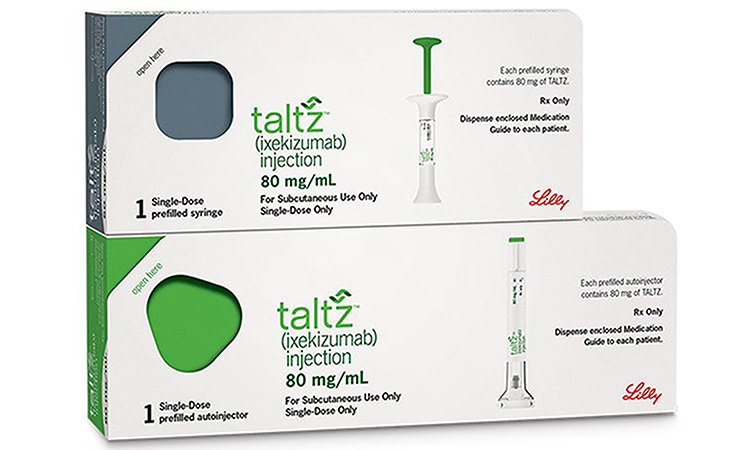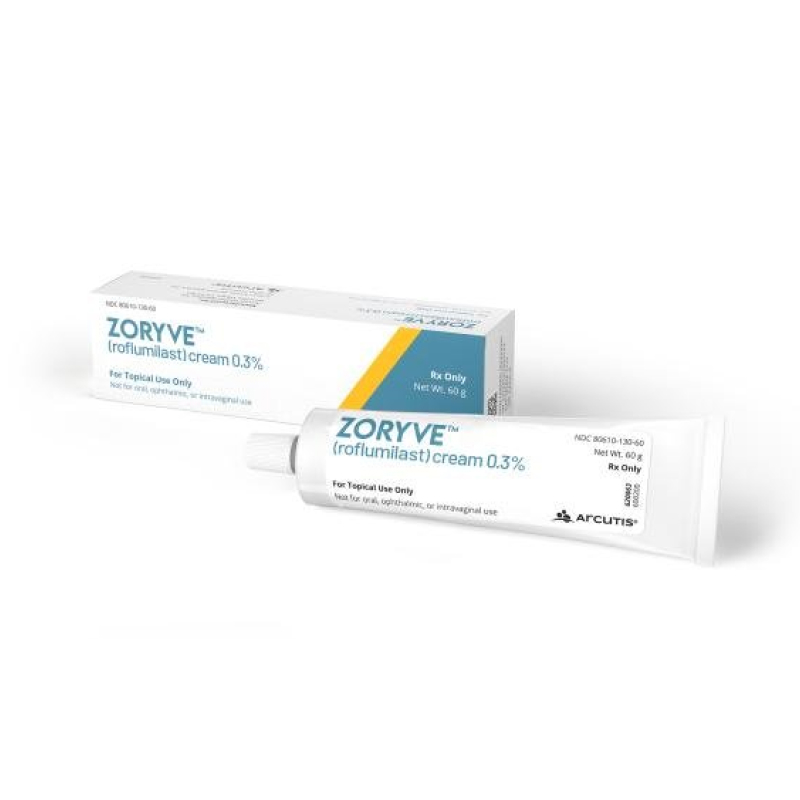Taltz (ixekizumab) vs Zoryve (roflumilast)
Taltz (ixekizumab) vs Zoryve (roflumilast)
Taltz (ixekizumab) is a biologic drug approved for the treatment of moderate-to-severe plaque psoriasis, active psoriatic arthritis, and ankylosing spondylitis, and works by targeting IL-17A, a protein that plays a role in inflammation. Zoryve (roflumilast) is a phosphodiesterase-4 (PDE4) inhibitor indicated for the topical treatment of plaque psoriasis, including in patients with difficult-to-treat areas such as the scalp. When deciding between Taltz and Zoryve, a patient must consider the severity and type of their condition, the method of administration (Taltz is injectable, while Zoryve is a topical cream), and consult with their healthcare provider to determine the most appropriate treatment based on their medical history and specific health needs.
Difference between Taltz and Zoryve
| Metric | Taltz (ixekizumab) | Zoryve (roflumilast) |
|---|---|---|
| Generic name | Ixekizumab | Roflumilast |
| Indications | Plaque psoriasis, Psoriatic arthritis, Ankylosing spondylitis | Plaque psoriasis |
| Mechanism of action | Interleukin-17A antagonist | Phosphodiesterase 4 (PDE4) inhibitor |
| Brand names | Taltz | Zoryve |
| Administrative route | Subcutaneous injection | Topical |
| Side effects | Injection site reactions, Upper respiratory tract infections, Nausea, Fungal infections | Diarrhea, Headache, Nausea, Decreased appetite, Insomnia, Back pain, Depression |
| Contraindications | Hypersensitivity to ixekizumab or any of the excipients | Hypersensitivity to roflumilast or any of the excipients, Moderate to severe liver impairment |
| Drug class | Monoclonal antibody | Phosphodiesterase 4 (PDE4) inhibitor |
| Manufacturer | Eli Lilly and Company | Arcutis Biotherapeutics, Inc. |
Efficacy
Efficacy of Taltz (Ixekizumab) in Treating Psoriasis
Taltz (ixekizumab) is a biologic medication approved for the treatment of moderate to severe plaque psoriasis in adults who are candidates for systemic therapy or phototherapy. It is a monoclonal antibody that selectively binds to interleukin 17A (IL-17A), a cytokine that plays a key role in the pathogenesis of psoriasis by promoting inflammation and the rapid growth of skin cells. Clinical trials have demonstrated that Taltz can lead to significant skin clearance in many patients with plaque psoriasis. In these studies, patients treated with Taltz often achieved a 75% reduction in the Psoriasis Area and Severity Index (PASI 75) score, and many even reached a 90% reduction (PASI 90) or complete clearance (PASI 100) within 12 weeks of treatment initiation.
The efficacy of Taltz was also sustained over time, with a majority of patients maintaining their treatment response with continued use. In long-term extension studies, the effectiveness of Taltz in maintaining skin clearance was observed up to 60 weeks. The safety profile of Taltz has been well-characterized, with the most common adverse events being injection site reactions and upper respiratory tract infections. However, as with all medications, the benefits must be weighed against the risks, and it is important for patients to discuss their treatment options with their healthcare provider.
Efficacy of Zoryve (Roflumilast) in Treating Psoriasis
Zoryve (roflumilast) is a phosphodiesterase-4 (PDE4) inhibitor that has been investigated for its potential use in the treatment of plaque psoriasis. Roflumilast is known for its anti-inflammatory properties and has been used primarily for the treatment of severe chronic obstructive pulmonary disease (COPD). The drug's efficacy in psoriasis is based on its ability to modulate the inflammatory pathways that contribute to the development and persistence of psoriatic plaques.
Clinical studies of roflumilast cream for plaque psoriasis have shown promising results. In these studies, patients applying roflumilast cream once daily have experienced significant improvements in their psoriasis symptoms compared to those using a placebo. The primary endpoint for many of these trials has been the achievement of clear or almost clear skin, as measured by the Investigator Global Assessment (IGA) score, with at least a two-point improvement from baseline. Additionally, roflumilast has been generally well-tolerated in clinical trials, with the most common side effects being application site reactions. As research continues, roflumilast may offer an alternative topical treatment option for patients with plaque psoriasis, particularly for those who prefer or require non-steroidal therapies.
Regulatory Agency Approvals
Taltz
-
European Medical Agency (EMA), European Union

-
Food and Drug Administration (FDA), USA

-
Health Canada

-
Therapeutic Goods Administration (TGA), Australia

Zoryve
-
Food and Drug Administration (FDA), USA

Access Taltz or Zoryve today
If Taltz or Zoryve are not approved or available in your country (e.g. due to supply issues), you can access them via Everyone.org.
How it works

Make an enquiry
Choose the medicine you want to buy, answer a couple of questions, and upload your prescription to speed things up. We’ll get back to you within 24 hours.


Make an enquiry
Choose the medicine you want to buy, answer a couple of questions, and upload your prescription to speed things up. We’ll get back to you within 24 hours.


Breeze through the paperwork
We'll guide you through the required documents for importing unapproved medicine, ensuring you have all the necessary information.


Get a personalized quote
We’ll prepare a quote for you, including medicine costs and any shipping, administrative, or import fees that may apply.


Receive your medicine
Accept the quote and we’ll handle the rest - sourcing and safely delivering your medicine.

Some text on this page has been automatically generated. Speak to your physician before you start a new treatment or medication.
Let's talk
If you have any questions, call us or send us a message through WhatsApp or email:
Contact us




